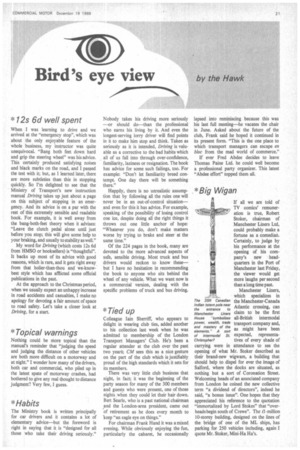*Habits
Page 23

If you've noticed an error in this article please click here to report it so we can fix it.
The Ministry book is written principally for car drivers and it contains a lot of elementary advice—but the foreword is right in saying that it is "designed for all those who take their driving seriously."
Nobody takes his driving more seriously —or should do—than the professional who earns his living by it. And even the longest-serving lorry driver will find points in it to make him stop and think. Taken as seriously as it is intended, Driving is valuable as a corrective to the bad habits which all of us fall into through over-confidence, familiarity, laziness or resignation. The book has advice for some such failings, too. For example: "Don't let familiarity breed contempt. One day there will be something there."
Happily, there is no unrealistic assumption that by following all the rules one will never be in an out-of-control situation— and even for this it has advice. For example, speaking of the possibility of losing control one ice, despite doing all the right things it throws out one little anchor of hope: "Whatever you do, don't make matters worse by trying to brake and steer at the same time."
Of the 224 pages in the book, many are devoted to the more advanced aspects of safe, sensible driving. Most truck and bus drivers would reckon to know these— but I have no hesitation in recommending the book to anyone who sits behind the wheel of any vehicle. What we want now is a commercial version, dealing with the specific problems of truck and bus driving.












































































